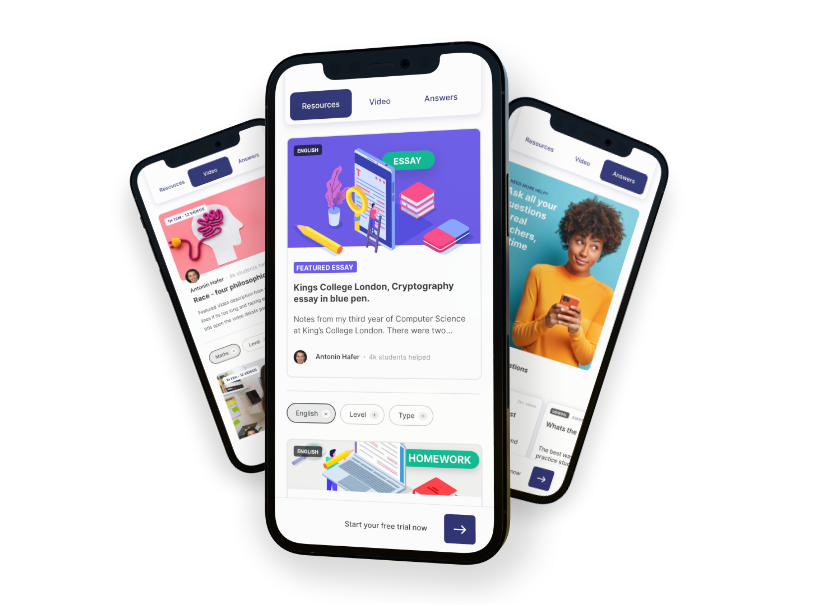How Scoodle is turning teachers into education ‘influencers’
In the wake of the pandemic’s disruption to schooling, Ismail Jeilani argues that now is the time to bring a fresh approach to addressing the needs of the next generation of pupils and teachers, writes Zlata Rodionova


Everyone has heard of the universities of Oxford and Cambridge but who can name the tutors?
Ismail Jeilani, the co-founder of Scoodle, is hoping his website and app will change all that.
Scoodle, which launched in 2017, is a tutoring platform that connects pupils and educators. With a content-driven approach, it enables teachers to answer questions, share learning resources or create videos. If pupils and parents like what they see, they can book lessons with them.
The company’s mission is for teachers to create their own brand and become “influencer educators” or the “Kim Kardashians of education”, as Jeilani calls it.
And in the wake of the pandemic’s disruption to schooling, Jeilani argues that now is the time to bring a fresh approach to addressing the needs of the next generation.
He told The Independent: “The notion of influencers has already taken off in almost every sector, just not in education and there’s a momentum to make that happen now.
“Teachers in schools can be famous within a three-mile radius. Other teachers and parents will know of them but go a little further than that and people will have no clue of who that person is. That’s simply because the network behind the education world doesn’t yet exist in digital form.
“The question we want to resolve is how to take the level of excitement that exists in a small space and take it to everyone else around.”
Jeilani, a former Google employee, built Scoodle with two of his childhood friends, Mujavid Bukhari and Imdad Ahad, who have backgrounds in software, digital services and education.
The platform doesn’t take a commission on tutor fees, meaning that parents or pupils don’t have to pay anything extra and teachers can keep all of their earnings
Four years after its launch, the platform is now used by 60,000 pupils monthly with 7,000 educators signed up.
He says: “Ed-tech and online learning was this thing that had potential but not much more than that. What we’ve seen with Covid is that it’s actually been embedded as a way of life.
“There’s been a huge uptake in interest in online learning and the beauty of the online world is that this content becomes much more accessible.”
The online teaching boom in the pandemic has allowed Scoodle to increase user numbers tenfold in the past year.
Early investors include Saad Choudri, chief commercial officer at Miniclip and Biz Stone, co-founder of Twitter.
In June, the founders also raised $2m (£1.4m) from Google, IFG and DA One in seed funding.
Rachael Palmer, head of VC and Startup Partnerships in EMEA at Google, says: “Increasing access to quality education is one of the big opportunities that the tech sector provides and we are really impressed with the speed of growth and the quality of execution that Ismail and his team have delivered to date.”
The platform doesn’t take a commission on tutor fees, meaning that parents or pupils don’t have to pay anything extra and teachers can keep all of their earnings.
However, pupils have the option to pay £4.99 a month for access to content such as premium videos. The subscription for teachers is £9.99 a month.
Jeilani explains that Scoodle’s ultimate goal is to put teachers at the forefront and make their content accessible and affordable for as many people as possible.
He says: “The reason we don’t charge a commission fee is that we want to retain our teachers and users. This incentive encourages them to contribute to the platform again and again.

“Scoodle also allows them to improve their Tutor Score. When you look at other tutoring platforms, there’s not much educators can do to make their profile visible.
“In our case, the content-creation piece is entirely in the hands of the tutor. Their ranking position is influenced by how many students are looking at their answers, how much time they spent reading their content and whether they go to specific teachers for a specific set of resources. It informs the platform that an educator is particularly credible at teaching a specific subject.
“The better the content they create, the better their position is. They get to build their reputation.”
In 2021, Jeilani and his team’s focus is increasing Scoodle’s content bank and make it accessible internationally.

The team also hopes to increase collaboration with schools in order to help them fill the learning gap left by the pandemic.
Jeilani says: “It’s not just a priority for companies like us but it’s a concern for schools and the government too. A big thing we’re pushing for now is to host workshops around education and career development in schools across the country.
“We’re putting together campaigns where we’re offering tutoring to students within some schools along with delivering workshops and training for teachers.
“To be able to deliver insights and share advice with teachers so that they can go on to share that with their current and future set of students is a very powerful thing for us.”
Join our commenting forum
Join thought-provoking conversations, follow other Independent readers and see their replies
Comments


Bookmark popover
Removed from bookmarks